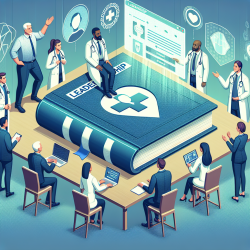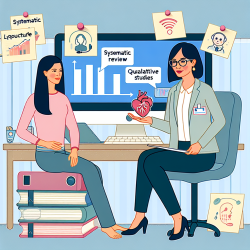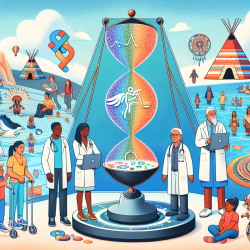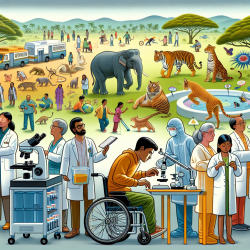The dynamic landscape of healthcare demands a new breed of leaders who can navigate complex systems and foster interprofessional collaboration. A recent rapid review titled "Leadership Development Strategies in Interprofessional Healthcare Collaboration: A Rapid Review" by Bornman and Louw provides valuable insights into the leadership characteristics and skills required by healthcare practitioners (HCPs) for effective collaborative service delivery. This blog explores the outcomes of this research and offers practical steps for practitioners looking to enhance their leadership capabilities.
The Importance of Leadership in Healthcare
Leadership is no longer confined to those in formal positions of power. In the healthcare sector, effective leadership is crucial at all levels to ensure safety, drive service development, and achieve positive clinical outcomes. The global COVID-19 pandemic has further underscored the need for strong leadership to manage crises and adapt to rapidly changing environments.
Key Findings from the Rapid Review
The rapid review conducted by Bornman and Louw systematically cataloged literature on leadership in healthcare practice and education. Here are some of the key findings:
- Diverse Methodologies: The review included qualitative, quantitative, and mixed-methods research, reflecting a broad range of healthcare disciplines.
- Interprofessional Collaboration: Teamwork and collaboration across disciplines were identified as critical components of effective leadership.
- Positive Outcomes: The review found that leadership training programs led to improvements in skills, knowledge, confidence, attitudes, and satisfaction among healthcare practitioners.
Applying Research Outcomes to Practice
The insights from this rapid review offer a roadmap for practitioners aiming to enhance their leadership skills. Here are some actionable steps based on the research findings:
1. Embrace Interprofessional Collaboration
Encourage teamwork across different healthcare disciplines. This approach not only improves patient outcomes but also enhances job satisfaction among practitioners. Consider implementing team-based projects or collaborative workshops to foster this environment.
2. Focus on Skill Development
Leadership development programs should prioritize building specific skills such as communication, conflict resolution, and change management. Tailor training sessions to address these areas and provide opportunities for practical application through simulations or role-playing exercises.
3. Foster a Culture of Lifelong Learning
Leadership is an ongoing journey. Encourage continuous professional development through workshops, webinars, and mentorship programs. Create a culture where learning is valued and supported at all levels of the organization.
4. Evaluate and Adapt Training Programs
Regularly assess the effectiveness of leadership training initiatives. Use feedback from participants to refine content and delivery methods. Consider incorporating technology-based solutions such as online courses or virtual reality simulations to enhance learning experiences.
The Future of Leadership in Healthcare
The rapid review highlights the need for a universally applicable framework for leadership development in healthcare. Such a framework would support training programs across multiple disciplines and promote greater efficiency in developing new initiatives.
As healthcare continues to evolve, so too must our approach to leadership development. By embracing interprofessional collaboration and focusing on skill enhancement, we can prepare practitioners to meet the challenges of tomorrow's healthcare landscape.
For those interested in delving deeper into this topic, I encourage you to read the original research paper: Leadership Development Strategies in Interprofessional Healthcare Collaboration: A Rapid Review.










